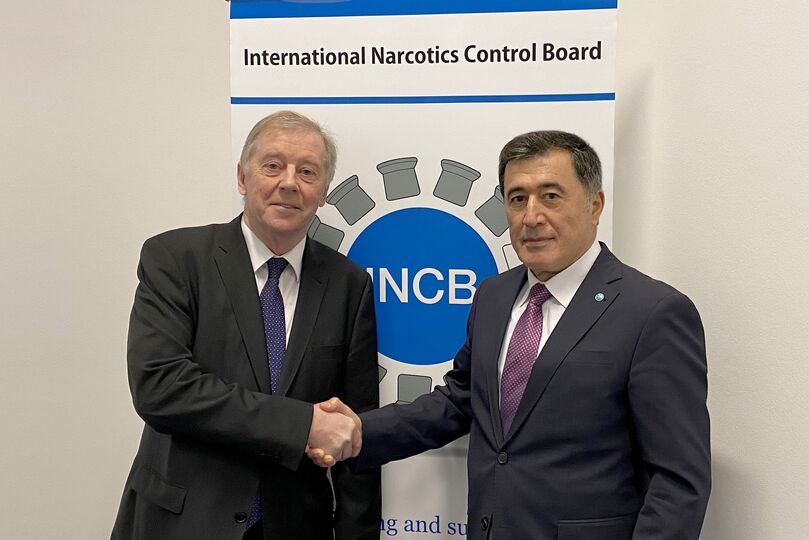On 6 March, SCO Secretary-General Vladimir Norov met with President of the International Narcotics Control Board (INCB) Cornelis de Joncheere on the sidelines of the 63rd session of the Commission on Narcotic Drugs.
Vladimir Norov updated his counterpart about the SCO's fight against illicit drugs, including the joint efforts of the member states within the framework of the three-tier mechanism for conferences of the heads of the concerned agencies, the implementation of the SCO Anti-Drug Strategy for 2018-2023 and action plan, as well as the development of the SCO Secretariat's ties with the UN Office on Drugs and Crime and other international organisations. The SCO Secretary-General noted that the SCO has a special working group of experts on precursors and reminded his interlocutor about a meeting of the Paris Pact Initiative expert group held with the assistance of the SCO Secretariat in Shanghai in November 2019.
Cornelis de Joncheere pointed out that the INCB attaches great importance to its cooperation with the SCO member states. He spoke about the proliferation of synthetic drugs and the international system of monitoring this alarming process. The INCB President also called for monitoring not only the diversion of precursors but also the technical equipment used for their production.
The two officials also discussed the further development of relations between the SCO Secretariat and the INCB, including through the participation of their representatives in events related to combatting drugs.
They agreed to maintain working level contacts.
The International Narcotics Control Board (INCB) is a specialised UN body established in 1968 in accordance with the Single Convention on Narcotic Drugs. Its membership, powers and functions are laid down in the Single Convention on Narcotic Drugs (1961) and the Convention on Psychotropic Substances (1971).
The main functions of the INCB are as follows: to monitor licit activities involving drugs with a view to achieving a balance between supply and demand for medical and scientific uses; to prevent the illicit manufacture of, trafficking in and use of drugs; to assist governments in complying with their obligations under the international drug control treaties; to assist countries and regions in dealing with matters related to drug control and illicit manufacture of, trafficking in and use of drugs.
